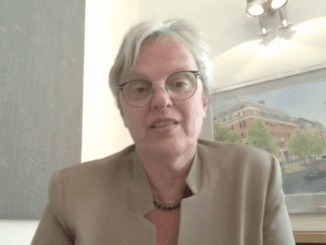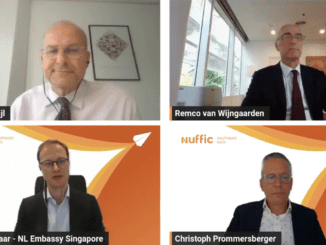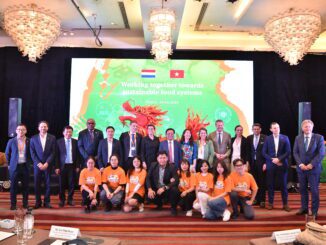
JAKARTA, KalderaNews.com – This funding is provided through the EU-ASEAN Sustainable Connectivity Package – Higher Education Programme (SCOPE-HE), financed by the European Union. Its goal is to improve exchange and connectivity in higher education, research, and technical vocational education and training (TVET). The programme is managed by the Dutch Organisation for Internationalisation in Education (Nuffic) and the German Academic Exchange Service (DAAD).
The SCOPE-HE Academic Connectivity Grant, part of this initiative, is available to higher education institutions (HEIs) in ASEAN and EU member states.
A cluster leader will coordinate a group of four to six institutions to collaboratively design and implement activities aimed at enhancing cross-regional academic connectivity, such as mobility for researchers, staff, and PhD students; curriculum updates; networking events; and publications. The programme focuses on three areas: Green Transition, Digital Transformation, and Blue Economy.
RELATED TOPICS:
- Closing the Gap Workshop 2024 Commences to Address Employability Gaps in ASEAN’s Agri-food Sector
- Building Bridges: EU-ASEAN Launch EUR 9.3 Million Initiative to Transform Higher Education and Research
- Youth Engagement in Agriculture Takes Center Stage with Launch of Innovative Campaign in Vietnam
Funding Details
- Number of grants available: 3
- Maximum grant amount: €545,000
- Funding period: January 2025 to December 2027
- Focus areas: Green Transition, Digital Transformation, Blue Economy
- Who can apply: HEIs from ASEAN and EU member states with a proven history of academic cooperation involving multiple partners in Europe and/or Southeast Asia.
Three Focus Areas
1). Green Transition
The Green Transition is a vital initiative within sustainable development that focuses on implementing sustainable practices to minimize environmental impact and promote ecological balance. This includes the adoption of renewable energy, sustainable agriculture, and circular economy principles. The Green Transition is especially critical for combating climate change and resource depletion. Ongoing research in this area fosters innovation and informs policy-making, providing solutions to global issues like carbon emissions and waste management, thereby playing a key role in achieving a sustainable future.
2). Digital Transformation
Digital transformation refers to the integration of digital technologies across all facets of an organization, fundamentally changing its operations and value delivery. In research, this transformation is crucial as it improves data collection, analysis, and dissemination, leading to more efficient and innovative results. By harnessing big data, artificial intelligence, and advanced analytics, digital transformation propels progress and enhances the precision of research efforts.
3). Blue Economy
The blue economy focuses on the sustainable utilization of ocean resources to promote economic growth, generate jobs, and preserve ecosystem health. Its significance in research is increasing as it addresses global challenges such as food security, climate change, and biodiversity loss. By promoting sustainable practices, the blue economy seeks to align development with environmental conservation, ensuring the protection of ocean resources for future generations.
Activities Eligible for Funding
- Development and revision of teaching and learning materials relevant to the project.
- Partial funding for PhD positions to encourage the participation of early-career researchers in collaborative research initiatives.
- Organization of events.
- Conducting additional and advanced training.
- Implementation of project-related activities and mobility opportunities (e.g., research, specialized courses/workshops, summer schools, internships, study, and teaching).
- Execution of public relations activities aimed at specific target groups.
Research within one of the focus areas.
For sustainability purposes, it is important to first determine whether a digital format could be appropriate and feasible before deciding on the method for implementing individual activities.
Activities Ineligible for Funding
- Representative trips that lack academic objectives and excursions.
- Research stays for researchers, staff, and PhD students exceeding 50 days.
- Travel intended solely for the purpose of initiating contracts.
The deadline for submitting proposals is 15 November 2024, 12.00am (GMT +2). The DAAD will decide on funding based on the evaluation of the applications by an international selection committee.
For more information: Grants for EU-ASEAN Higher Education Institution clusters fostering academic connectivity (2025-2027)
Cek Berita dan Artikel KalderaNews.com lainnya di Google News
*Jika merasa artikel ini bermanfaat, silakan dishare pada saudara, sahabat dan teman-temanmu. Tertarik menjalin kerjasama dengan KalderaNews.com? Silakan hubungi WA (0812 8027 7190) atau email: kalderanews@gmail.com





Leave a Reply